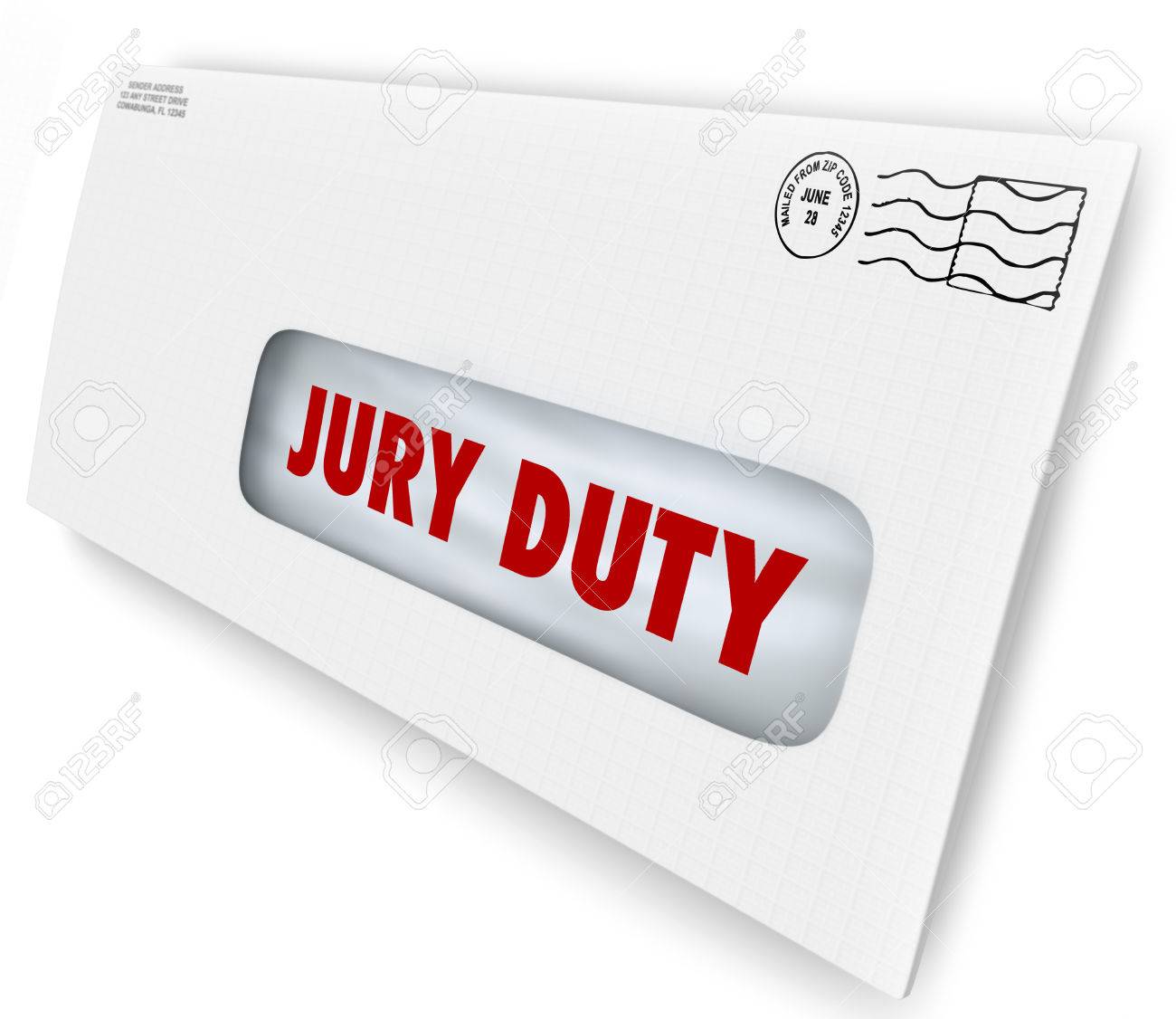Jury Duty!

You’ve opened your mailbox, not your e-mail box, your actual post office box. You’ve sifted through the newspaper advertisements and you notice an “official” looking envelope with a return address from the Clerk of the Circuit Court of your county. Curious, you open it and find you’ve been summoned for jury duty. What thoughts go through your mind? Dread? Fear? Anger? Jury duty interferes with the things we want and need to do in our lives. Recently I was summoned for jury duty and I had the same thoughts go through my mind and I am a lawyer! This article will explain what to expect with jury duty. I can speak from being an attorney who makes his living in front of the jury as well as a citizen who recently was summoned for jury duty.
Why me?
Different counties have different criteria for selecting jurors. Some use voting roles for eligibility for jury duty. This has fallen out of favor since it does not represent a cross section of the community, the cornerstone of jury duty. Most counties now use lists derived from driver license and state ID roles. This tends to result in diversity of jurors which is the goal of the Seventh Amendment to the Bill of Rights. If you have a license or state ID, odds are you will be summoned for jury duty at one time or another.
How I was summoned for jury service
There is a misconception that lawyers are exempt from jury service. I can tell you from firsthand experience, I have been summoned for jury duty at least a half dozen times over the years. It is as inconvenient for me as it is to you, but I always appear as summoned. I practice personal injury and workers’ compensation law on behalf of injured individuals. I can assure you that an insurance lawyer or lawyer for a big corporation would not want me sitting on their jury. While I would do my best to be fair and impartial, I certainly would bring my life experiences into the jury room. This is not bad, in fact, it is the goal of the jury system. Contrast that with a criminal trial. Although I may be a lawyer, neither a prosecutor nor a criminal defense lawyer would perceive a bias in me for one side or the other. The fact that I am a personal injury lawyer does not predispose me one way or another in a criminal case. Regrettably, I have never made it onto a jury, though the fact that I am a lawyer has not been a disqualifying factor.
What to expect in jury service
In case you haven’t figured it out, you have to go to court when summoned. Sometimes, your jury card may indicate you should call a phone number to see if you must attend. The purpose of this is so there are not too many jurors showing up and not being used. Each day, judges can estimate the number of jurors needed for the next day, and you may not have to go at all.
But assuming you have to, you can look forward to a lot of time sitting around. First, you’ll sit in the jury assembly room with between 30-150 other people who do not want to be there. Periodically, the jury commissioner will call out people’s names or juror numbers who are brought to the courtroom. After 2 pm, or so, if you have not been called by the jury commissioner, you will likely be excused for the day.
But, if you are called to court, you likely will be one of 30 or so jurors lead to the courtroom. Most jury trials have only 12 jurors, so why are so many called to the courtroom? Each lawyer is entitled to excuse a certain number of jurors (usually five for each side) for any reason. A judge wants to ensure she has enough potential jurors to empanel twelve jurors, thus the need for 30 to start.
All jurors called into court are asked a series of questions, some general, some dealing with specific facts of the case. These questions are not meant to be invasive or embarrassing, but designed to select twelve impartial jurors who are best to decide the facts of that particular case. Lawyers may excuse jurors for any reason, so long as it is not a discriminatory reason. At the end of the questioning process, twelve jurors are selected to judge the case.
Do I get paid from work or by the Court?
Being a juror is considered a civic duty. You are entitled to receive a check from the Court of about $25/day. This will not even pay for parking in Chicago. But, the law sets the amount the court must pay jurors. Furthermore, there is no law which requires employers to pay you while you are called for jury duty. Some employers will pay your normal salary for jury duty, but there is no law requiring this. Jury duty can be a financial hardship on many people.
How do I get out of jury duty?
I am reluctant to even write this paragraph, but I do so for informational purposes, not as an instruction manual to do so. There are several statutory grounds which excuse someone from jury duty. These are extremely limited, but these are all legal grounds for being excused for jury duty:
- Not a resident of the county
- Under 18 years old
- Not a US citizen
- Active military duty
- Served within the past 4 years
- Have a pending court case in the county
- And finally, my favorite, juror deceased (I have yet to find a juror who meets this criteria)
As you can see, there are very few grounds to get out of jury duty under the law. A judge does have the authority to excuse a juror “for cause.” If you are in the middle of a big project, or have a vacation planned or some other excuse, it is easy to get a deferment, meaning you will be excused for your summoned date, but this will only postpone your service. It is not an excuse which gets you out of jury duty completely. It merely prolongs your service.
Under the law, a juror must merely be “free from all legal exception, of fair character, of approved integrity, of sound judgment, well informed, and able to the understand the English language, whether in spoken or written form or interpreted into sign language.” As you can see, it is a very broad standard.
Another way to get “out” of jury service is to be excused by one of the lawyers for the parties. Each party in a legal dispute before a jury has the right to “strike” a certain number of jurors for virtually any reason. A lawyer cannot excuse a juror for a discriminatory reason, but lawyers have the legal right to excuse a certain number of jurors because they desire a fair representation of society to judge the case.
There is a myth that you can get out of jury service by stating, “I do not believe I could be fair.” Judges and lawyers will see right through this statement as a way of trying to get out of jury service and often ensure such individuals are selected. My advice is to simply tell the truth and answer the questions as asked. Not every juror is the right juror for a particular case. If you had a legal dispute to be decided in court, you would rely on other citizens to serve as jurors in your case. As citizens, it is our civic duty to be eligible, and if selected, serve on a jury.
Jury duty is not optional. If you are summoned, you are required to appear consistent with the jury summons. If you do not, the judge has the right to hold you in contempt of court. I have seen judges send the sheriff out and arrest people who fail to appear in court and require them to brought before the judge who has the power to place someone in jail. There can be very serious consequences for failure to appear for jury duty.
People fought for and died for the right to a jury. The jury is the great equalizer of society and serves as a check on governmental and corporate power. Although you may view the process with dread, most jurors take the role very seriously and enjoy the process. I know, from talking to many jurors after my cases, that they are proud of the work they do for our society. The jury system, like democracy, is the worst system in the world, except for all the others.

